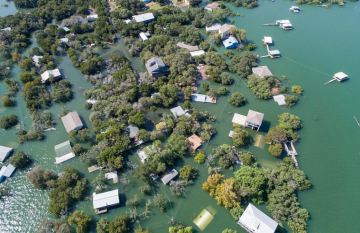In today’s increasingly connected and technology-driven world, modern consumers have the tools and the drive to make their purchasing decisions based on their own research. As a result, consumer demand for corporate responsibility, transparency, and accountability is rising to new heights — especially when it comes to sustainable business practices and combating climate change.
While most consumers aren’t taking to the streets in protest, they are speaking with their wallets. According to Yale Program on Climate Change Communication research, close to one-third of Americans reported rewarding companies that are taking steps to reduce global warming by buying their products at least once in the past year. In addition, one-in-five people said they had “punished” companies for opposing climate action by avoiding their products.
Of course, consumer awareness, engagement, and activism isn’t unique to the U.S. In Denmark, for example, Selina Juul, who came to the country from Russia when she was 13, founded the consumer organization “Stop Wasting Food.” Five years later, the country has reduced its food waste by a whopping 25%.
“The bottom line is, it’s no longer business as usual if companies want to survive and thrive as consumers continue to demand better of them,” says Nick Martin, Sustainability Practice Leader at Antea Group USA. “Ten years ago, climate change strategies were considered ‘nice to have’, where today, businesses are proactively driving actions to reduce greenhouse gas emissions associated with their operations, supply chains, and product lifecycles.”
So the question is, how can you show the consumer you are both talking the talk and walking the walk with your environmental practices? Below we lay out four steps to promoting sustainability throughout your company and to the general public.
1. It’s time to double-down on transparency across your supply chain.
Your company will be held accountable for the actions and practices of many of your supply chain partners. This means it’s time to take stock of your vulnerabilities – a sustainability consultant can be a great help to get a detailed overall picture.
2. Consumer stakeholder engagement is no longer an option; it’s an imperative.
Consumer voices are increasingly powerful. If you’re not listening, you’re not going to thrive or even survive. You need to be accessible and responsive to all feedback.
3. Your commitments to sustainability need to become part of your brand.
We’re not talking about just saying you’re committed. We’re talking about putting your money where your mouth is and proving it. Marketing these changes is needed and can promote your brand in a way you haven’t been able to before.
4. You’ll need to readdress your corporate social responsibility and sustainability strategies. From a business perspective, ask yourself:
- What’s working and what’s not?
- Do your initiatives align with what consumers and other stakeholders want?
- Are consumers the only stakeholders that drive your initiatives?
- What is your risk tolerance when it comes to noncompliance, bad press, etc.?
- Do your company values and mission actually drive your current strategy?
- What’s missing?
Addressing these questions can be difficult and take some thought and reworking of preexisting ideas.
Learn how Antea Group can help you craft a climate change and sustainability strategy that adds real business value to your business and gives consumers what they want.
Want more news and insights like this?
Sign up for our monthly e-newsletter, The New Leaf. Our goal is to keep you updated, educated and even a bit entertained as it relates to all things EHS and sustainability.
Get e-NewsletterHave any questions?
Contact us to discuss your environment, health, safety and sustainability needs today.





